Harris Khalique
Published October 13, 2024

Out of the three principal centres of Indo-Persian civilisation that evolved from a fusion of multiple Vedic and Arabo-Persian cultures over centuries, Delhi and Lahore continue to be celebrated, while Lucknow is both celebrated and mourned. During the last millennium, all these cities enjoyed their share of primacy, glory, splendour and opulence, but also experienced bloodletting, conquests, loot and plunder.
Delhi and Lahore regained their significance and survived during and in the aftermath of colonialism. Lucknow could never fully recover from the colonial shock — perhaps also paying the price for being one of the fiercest battle grounds during the 1857 War of Independence against the British.
The region comprising Awadh, which includes Lucknow, is a part of the state of Uttar Pradesh (which was earlier called United Provinces of Agra and Oudh) created during the British Raj. Awadh has a legendary religious and intellectual significance in Indian history. But compared to Lucknow, the cities of Delhi and Lahore had longer histories, bigger cosmopolitan spaces and wider cultural markers to draw upon.
Lucknow had one long period of glory, which was decimated by the British. That period spanned from 1722 to 1856 when Lucknow, which earlier was the capital of the Mughal province of Awadh, became Awadh as a local Indian sultanate. Those 134 years of Awadh inscribed indelible marks on South Asian culture and history.
In post-Independence India, the city remains the capital city of the state of Uttar Pradesh but efforts to erase the historically inclusive and secular cultural milieu of Lucknow continued by constantly invoking communalism, not only incrementally but also systematically. For Lucknow, the journey from Wajid Ali Shah to Yogi Aditya Nath must have been excruciatingly painful and terribly tedious.
In the 19th century, the British particularly vilified three local rulers in India. They humiliated Bahadur Shah Zafar in Delhi, the emperor whose Mughal empire had shrunk to a city but whose two sons and eldest grandson had to be killed to establish British supremacy. The second ruler was Maharaja Ranjit Singh of Punjab, who had contained the British to the left bank of the Sutlej river until he was alive. It was only 10 years after the death of the maharaja, in 1849, that Punjab could be annexed by the British East India Company.
The third ruler who was ridiculed was Nawab Wajid Ali Shah, whose state was indomitable in terms of both society and culture. He was a musician par excellence, a fine poet, a benevolent ruler and quite popular among his subjects. His wife, Hazrat Mahal, played a significant role in the 1857 War of Independence, after the Nawab had been exiled from Awadh.
The British and those local writers who were inspired by their brush with European modernism or those who decided to collaborate with the new colonial rulers, portrayed the emperor, the maharaja and the nawab as decadent, debauched, devious and disingenuous.
Since the victor writes the history of the vanquished, the three local Indian rulers still hold the same reputation in the imagination of not all but many native South Asians today that was propagated by the British. This remains the case even after alternative accounts of history have been made available by a range of Western and South Asian historians and writers over the last many years — beginning from Bari Alig’s seminal work Company Ki Hakoomat [The Rule of the Company], first published from Lahore in 1937.
This year, Jhelum Book Corner has published an incredible tale of Lucknow in two large volumes. It is a meticulously organised collection of writings by the late Maulana Muhammad Baqar Shams. His grandson, Vaqar Haider, who is now based in New York, has painstakingly collected, chronicled and compiled the two volumes of Shams’ writings, titled Dastan-i-Lucknow [The Lucknow Story] and Dabistan-i-Lucknow [The Lucknow School]. From ancient history to pre-Sultanate days to the rule of the nawabs in the Sultanate of Avadh to the British Raj followed by independence, the collections bring us to the 1980s.
Written in an idiomatic and lucid language, these two volumes bring together incredible details of the Awadhi habitat with Lucknow at the centre. Nothing seems to have been missed in the areas of knowledge, sociology, culture, art or sports. Scholars and their scholarship, religious schools of thought and their leaders, physicians, traders and businesspersons, artisans, artists, poets, linguists, writers, musicians, academics, theatre and its performers and jesters etc, are not only introduced to the reader, their contribution and skills are also mentioned and commented upon. There are some other good works but Shams has written the most comprehensive social history of Lucknow.
In English, the books on Lucknow’s art, culture, music, history, political economy and architecture that are worth looking at, in my opinion, include King Wajid Ali Shah of Awadh (two volumes) by Mirza Ali Azhar, published in 1982 by the Royal Book Company in Karachi, Amaresh Misra’s Lucknow: Fire of Grace — The Story of its Renaissance, Revolution and the Aftermath, first published in 1998 by Harper Collins Publishers India, and a coffee table book on the city’s history and architecture, Lucknow: City of Illusion, edited by Rosie Llewllyn-Jones under the supervision of Ebrahim Alkazi and published by Prestel in 2006.
The fire of grace is perhaps now out but it has left some glowing embers behind.
Published in Dawn, Books & Authors, October 13th, 2024
COLUMN: HUMANISING THROUGH CULTURE

Out of the three principal centres of Indo-Persian civilisation that evolved from a fusion of multiple Vedic and Arabo-Persian cultures over centuries, Delhi and Lahore continue to be celebrated, while Lucknow is both celebrated and mourned. During the last millennium, all these cities enjoyed their share of primacy, glory, splendour and opulence, but also experienced bloodletting, conquests, loot and plunder.
Delhi and Lahore regained their significance and survived during and in the aftermath of colonialism. Lucknow could never fully recover from the colonial shock — perhaps also paying the price for being one of the fiercest battle grounds during the 1857 War of Independence against the British.
The region comprising Awadh, which includes Lucknow, is a part of the state of Uttar Pradesh (which was earlier called United Provinces of Agra and Oudh) created during the British Raj. Awadh has a legendary religious and intellectual significance in Indian history. But compared to Lucknow, the cities of Delhi and Lahore had longer histories, bigger cosmopolitan spaces and wider cultural markers to draw upon.
Lucknow had one long period of glory, which was decimated by the British. That period spanned from 1722 to 1856 when Lucknow, which earlier was the capital of the Mughal province of Awadh, became Awadh as a local Indian sultanate. Those 134 years of Awadh inscribed indelible marks on South Asian culture and history.
In post-Independence India, the city remains the capital city of the state of Uttar Pradesh but efforts to erase the historically inclusive and secular cultural milieu of Lucknow continued by constantly invoking communalism, not only incrementally but also systematically. For Lucknow, the journey from Wajid Ali Shah to Yogi Aditya Nath must have been excruciatingly painful and terribly tedious.
In the 19th century, the British particularly vilified three local rulers in India. They humiliated Bahadur Shah Zafar in Delhi, the emperor whose Mughal empire had shrunk to a city but whose two sons and eldest grandson had to be killed to establish British supremacy. The second ruler was Maharaja Ranjit Singh of Punjab, who had contained the British to the left bank of the Sutlej river until he was alive. It was only 10 years after the death of the maharaja, in 1849, that Punjab could be annexed by the British East India Company.
The third ruler who was ridiculed was Nawab Wajid Ali Shah, whose state was indomitable in terms of both society and culture. He was a musician par excellence, a fine poet, a benevolent ruler and quite popular among his subjects. His wife, Hazrat Mahal, played a significant role in the 1857 War of Independence, after the Nawab had been exiled from Awadh.
The British and those local writers who were inspired by their brush with European modernism or those who decided to collaborate with the new colonial rulers, portrayed the emperor, the maharaja and the nawab as decadent, debauched, devious and disingenuous.
Since the victor writes the history of the vanquished, the three local Indian rulers still hold the same reputation in the imagination of not all but many native South Asians today that was propagated by the British. This remains the case even after alternative accounts of history have been made available by a range of Western and South Asian historians and writers over the last many years — beginning from Bari Alig’s seminal work Company Ki Hakoomat [The Rule of the Company], first published from Lahore in 1937.
This year, Jhelum Book Corner has published an incredible tale of Lucknow in two large volumes. It is a meticulously organised collection of writings by the late Maulana Muhammad Baqar Shams. His grandson, Vaqar Haider, who is now based in New York, has painstakingly collected, chronicled and compiled the two volumes of Shams’ writings, titled Dastan-i-Lucknow [The Lucknow Story] and Dabistan-i-Lucknow [The Lucknow School]. From ancient history to pre-Sultanate days to the rule of the nawabs in the Sultanate of Avadh to the British Raj followed by independence, the collections bring us to the 1980s.
Written in an idiomatic and lucid language, these two volumes bring together incredible details of the Awadhi habitat with Lucknow at the centre. Nothing seems to have been missed in the areas of knowledge, sociology, culture, art or sports. Scholars and their scholarship, religious schools of thought and their leaders, physicians, traders and businesspersons, artisans, artists, poets, linguists, writers, musicians, academics, theatre and its performers and jesters etc, are not only introduced to the reader, their contribution and skills are also mentioned and commented upon. There are some other good works but Shams has written the most comprehensive social history of Lucknow.
In English, the books on Lucknow’s art, culture, music, history, political economy and architecture that are worth looking at, in my opinion, include King Wajid Ali Shah of Awadh (two volumes) by Mirza Ali Azhar, published in 1982 by the Royal Book Company in Karachi, Amaresh Misra’s Lucknow: Fire of Grace — The Story of its Renaissance, Revolution and the Aftermath, first published in 1998 by Harper Collins Publishers India, and a coffee table book on the city’s history and architecture, Lucknow: City of Illusion, edited by Rosie Llewllyn-Jones under the supervision of Ebrahim Alkazi and published by Prestel in 2006.
The fire of grace is perhaps now out but it has left some glowing embers behind.
Published in Dawn, Books & Authors, October 13th, 2024
COLUMN: HUMANISING THROUGH CULTURE
Published September 30, 2024
During the 1970s and 1980s, some popular slogans among politically charged progressive students in Pakistan included ‘Jamhooriyat ke teen nishaan/ Talaba, mazdoor aur kisaan [The three markers of democracy/ Students, labour and peasants]’ and ‘Loot khasoot ke raj ko badlo/ Chehray nahin samaaj ko badlo [Change the system of loot and plunder/ Don’t change faces, change the order].’ In Urdu, these slogans rhyme perfectly well.
Those were the times when the struggles for democracy and economic justice were waged in unison by students, labour movements, journalist federations and artists and writers’ associations. The Women’s Action Forum (WAF) came about in the early 1980s to challenge the anti-women laws that were enacted under Gen Zia’s martial rule and then to continue the struggle for the realisation of women’s fundamental rights, leading to their empowerment. WAF joined the existing fold of labour and student activists.
We saw a sharp decline in this unity between different class and identity movements after trade unions were suffocated to the level that now less than two percent of our labour is left with collective bargaining agency. Student unions were banned during the same martial rule and journalists and writers were systematically divided within their ranks.
Consequently, the link between literary writers and artists, journalists, labour and students became weaker and weaker. In present times, there is a demonstrated desire in some quarters to strengthen that link, but it still needs a lot of painstaking effort.
Among the very few activists of the old school left from the 1970s and 1980s who remain equally active now, one prominent name is that of Akram Kaimkhani. He was a left-wing student leader in Karachi and a pro-democracy activist after Gen Zia’s coup d’etat.
Kaimkhani was born in Tharparkar and moved to Karachi with his parents at a young age. He studied at Jamia Millia College, Malir, and the University of Karachi. Kaimkhani’s polio-affected leg, which limited his ability to run away in case of a police raid, neither had an effect on his own fervour nor inspired any sympathy in the hearts of the martial law operatives, who tortured him and kept him in prison.
After getting political asylum in the UK, Kaimkhani worked hard to make ends meet. Over the years, he managed to raise his family in a decent, respectable way. Now in his mid-60s, he continues to work long hours to run his household with dignity. All along, nothing could stop him from contributing to just political and social causes in Pakistan and the UK, and towards peace and development in the South Asian region.
From supporting struggles for democracy and economic justice to being a key volunteer for organisations such as the Edhi Foundation in London, he has invested his time, energy and finances beyond the extent of any normal person. Kaimkhani was a part of street politics and also remained a close confidante of both Mairaj Mohammed Khan and Benazir Bhutto, among other political leaders from Pakistan.
Some years ago, Kaimkhani realised that he should focus more of his energies towards promoting art, culture and literature, because they have the innate ability to humanise people of different ilks, which confrontational politics can seldom do. He had always been committed to promoting a culture of dialogue to strengthen democracy and the larger wellbeing of society.
Therefore, he spearheaded the establishment of the Faiz Foundation Trust, along with his friends from the Pakistani diaspora in the UK. They organised some outstanding cultural and literary events in pre-Covid 19 years, and brought together people from different countries, who were provided an opportunity to further the dialogue and deliberate upon issues that common people in South Asia and the developing world face.
Recently, Kaimkhani, along with podcaster Yousuf Abraham, chartered accountant Anjum Raza and physician Dr Umar Daraz mobilised political workers, artists, writers, journalists, culture aficionados and professionals of South Asian origin, along with his other British comrades, to establish the Voices of South Asian Art and Literature (VSAAL) in London.
VSAAL, after coming into being, took only a few months to organise, on September 14, the First South Asian Festival at the prestigious Bloomsbury Theatre in the heart of London, which I too attended. The Bloomsbury Theatre was filled to capacity for the event. Leading Indian dance and theatre curator and promoter Mira Misra Kaushik managed the event.
There was a panel discussion on the composite heritage of South Asian languages, involving writer Jami Chandio, British-Italian academic Prof Francesca Orsin and poet Uruj Asif. It was candid and sharp. Veteran journalist and trade unionist Mazhar Abbas spoke to another accomplished journalist and broadcaster Javed Soomro on current politics, journalism and censorship in South Asia.
There was a discussion led by British-Indian broadcaster Pervaiz Alam on a book by Dr Salman Akhtar, which does a psycho-literary analysis of four master poets Akhtar is related to — Muztar Khairabadi, Jan Nisar Akhtar, Javed Akhtar and Asrar-ul-Haq Majaz. There was a launch of a book of poetry by Dr Razi Mohammed. Author and lawyer Saif Mehmood from Delhi made an exquisite presentation on Urdu poet Mir Taqi Mir and Bangla poet Qazi Nazrul Islam.
A session was dedicated to veteran journalist, filmmaker, author and former secretary-general of the Progressive Writers Association, Hameed Akhtar, to mark his 100th birth anniversary. Leading actor (and Akhtar’s daughter) Saba Hameed and poet Iftikhar Arif recounted their memories of the times when Hameed Akhtar lived a life with pure ideological commitment and spent three terms in prison. Saba Hameed also read excerpts from her father’s witty pen portrait, written by himself.
The conversations on languages, literature and culture were followed by music performances of singers from South Asia. The mood in the crowd confirmed that it is the composite South Asian cultural heritage that unifies us across our ideological divides. If pursued consistently, it can perhaps make feuding states in the region shed their egos and come together for the sake of common people and their long-lasting prosperity.
The columnist is a poet and essayist. His latest collections of verse are Hairaa’n Sar-i-Bazaar and No Fortunes to Tell
Published in Dawn, Books & Authors, September 29th, 2024
During the 1970s and 1980s, some popular slogans among politically charged progressive students in Pakistan included ‘Jamhooriyat ke teen nishaan/ Talaba, mazdoor aur kisaan [The three markers of democracy/ Students, labour and peasants]’ and ‘Loot khasoot ke raj ko badlo/ Chehray nahin samaaj ko badlo [Change the system of loot and plunder/ Don’t change faces, change the order].’ In Urdu, these slogans rhyme perfectly well.
Those were the times when the struggles for democracy and economic justice were waged in unison by students, labour movements, journalist federations and artists and writers’ associations. The Women’s Action Forum (WAF) came about in the early 1980s to challenge the anti-women laws that were enacted under Gen Zia’s martial rule and then to continue the struggle for the realisation of women’s fundamental rights, leading to their empowerment. WAF joined the existing fold of labour and student activists.
We saw a sharp decline in this unity between different class and identity movements after trade unions were suffocated to the level that now less than two percent of our labour is left with collective bargaining agency. Student unions were banned during the same martial rule and journalists and writers were systematically divided within their ranks.
Consequently, the link between literary writers and artists, journalists, labour and students became weaker and weaker. In present times, there is a demonstrated desire in some quarters to strengthen that link, but it still needs a lot of painstaking effort.
Among the very few activists of the old school left from the 1970s and 1980s who remain equally active now, one prominent name is that of Akram Kaimkhani. He was a left-wing student leader in Karachi and a pro-democracy activist after Gen Zia’s coup d’etat.
Kaimkhani was born in Tharparkar and moved to Karachi with his parents at a young age. He studied at Jamia Millia College, Malir, and the University of Karachi. Kaimkhani’s polio-affected leg, which limited his ability to run away in case of a police raid, neither had an effect on his own fervour nor inspired any sympathy in the hearts of the martial law operatives, who tortured him and kept him in prison.
After getting political asylum in the UK, Kaimkhani worked hard to make ends meet. Over the years, he managed to raise his family in a decent, respectable way. Now in his mid-60s, he continues to work long hours to run his household with dignity. All along, nothing could stop him from contributing to just political and social causes in Pakistan and the UK, and towards peace and development in the South Asian region.
From supporting struggles for democracy and economic justice to being a key volunteer for organisations such as the Edhi Foundation in London, he has invested his time, energy and finances beyond the extent of any normal person. Kaimkhani was a part of street politics and also remained a close confidante of both Mairaj Mohammed Khan and Benazir Bhutto, among other political leaders from Pakistan.
Some years ago, Kaimkhani realised that he should focus more of his energies towards promoting art, culture and literature, because they have the innate ability to humanise people of different ilks, which confrontational politics can seldom do. He had always been committed to promoting a culture of dialogue to strengthen democracy and the larger wellbeing of society.
Therefore, he spearheaded the establishment of the Faiz Foundation Trust, along with his friends from the Pakistani diaspora in the UK. They organised some outstanding cultural and literary events in pre-Covid 19 years, and brought together people from different countries, who were provided an opportunity to further the dialogue and deliberate upon issues that common people in South Asia and the developing world face.
Recently, Kaimkhani, along with podcaster Yousuf Abraham, chartered accountant Anjum Raza and physician Dr Umar Daraz mobilised political workers, artists, writers, journalists, culture aficionados and professionals of South Asian origin, along with his other British comrades, to establish the Voices of South Asian Art and Literature (VSAAL) in London.
VSAAL, after coming into being, took only a few months to organise, on September 14, the First South Asian Festival at the prestigious Bloomsbury Theatre in the heart of London, which I too attended. The Bloomsbury Theatre was filled to capacity for the event. Leading Indian dance and theatre curator and promoter Mira Misra Kaushik managed the event.
There was a panel discussion on the composite heritage of South Asian languages, involving writer Jami Chandio, British-Italian academic Prof Francesca Orsin and poet Uruj Asif. It was candid and sharp. Veteran journalist and trade unionist Mazhar Abbas spoke to another accomplished journalist and broadcaster Javed Soomro on current politics, journalism and censorship in South Asia.
There was a discussion led by British-Indian broadcaster Pervaiz Alam on a book by Dr Salman Akhtar, which does a psycho-literary analysis of four master poets Akhtar is related to — Muztar Khairabadi, Jan Nisar Akhtar, Javed Akhtar and Asrar-ul-Haq Majaz. There was a launch of a book of poetry by Dr Razi Mohammed. Author and lawyer Saif Mehmood from Delhi made an exquisite presentation on Urdu poet Mir Taqi Mir and Bangla poet Qazi Nazrul Islam.
A session was dedicated to veteran journalist, filmmaker, author and former secretary-general of the Progressive Writers Association, Hameed Akhtar, to mark his 100th birth anniversary. Leading actor (and Akhtar’s daughter) Saba Hameed and poet Iftikhar Arif recounted their memories of the times when Hameed Akhtar lived a life with pure ideological commitment and spent three terms in prison. Saba Hameed also read excerpts from her father’s witty pen portrait, written by himself.
The conversations on languages, literature and culture were followed by music performances of singers from South Asia. The mood in the crowd confirmed that it is the composite South Asian cultural heritage that unifies us across our ideological divides. If pursued consistently, it can perhaps make feuding states in the region shed their egos and come together for the sake of common people and their long-lasting prosperity.
The columnist is a poet and essayist. His latest collections of verse are Hairaa’n Sar-i-Bazaar and No Fortunes to Tell
Published in Dawn, Books & Authors, September 29th, 2024




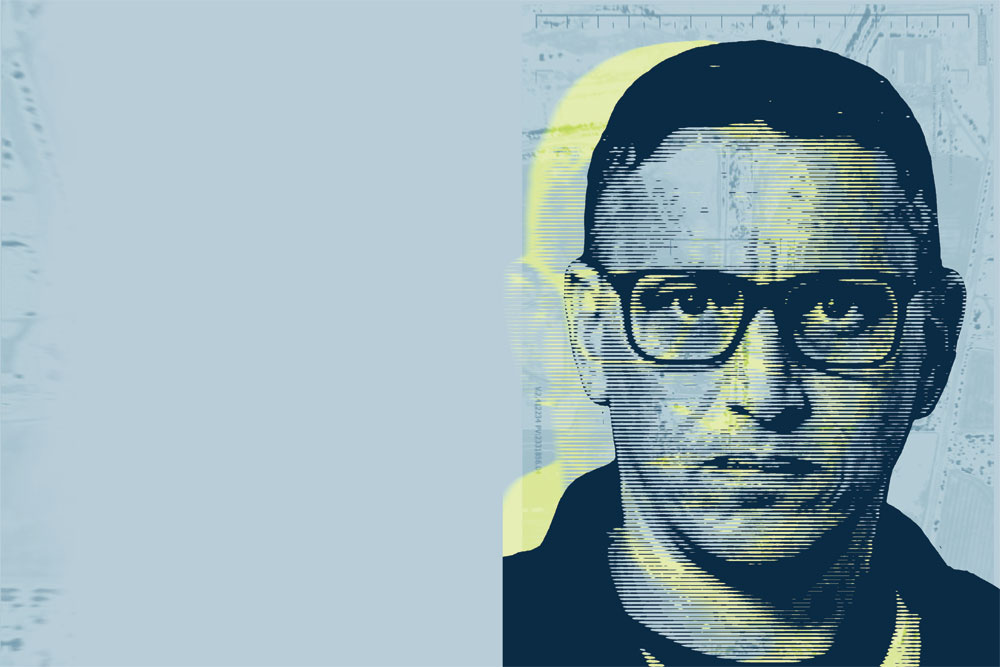
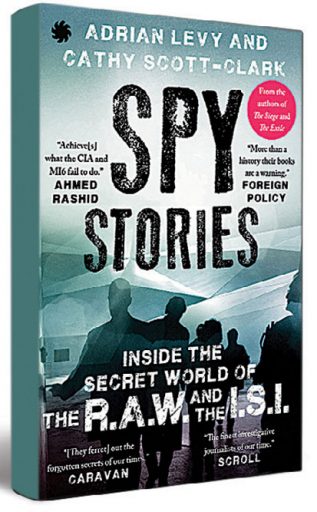
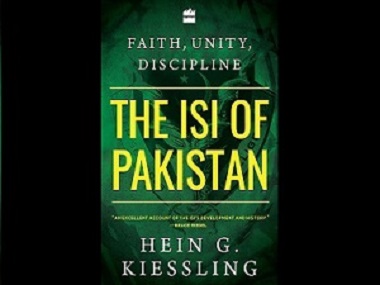)
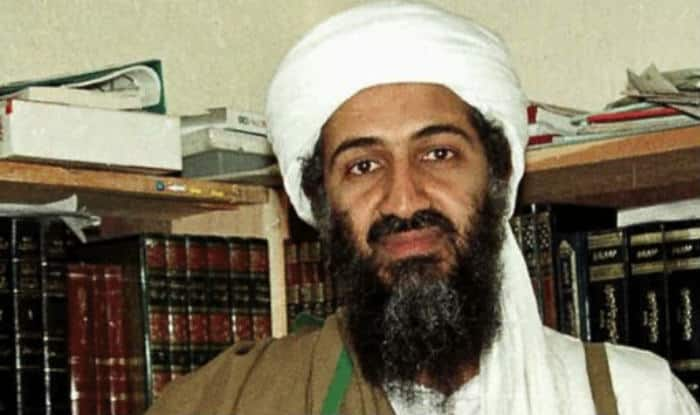



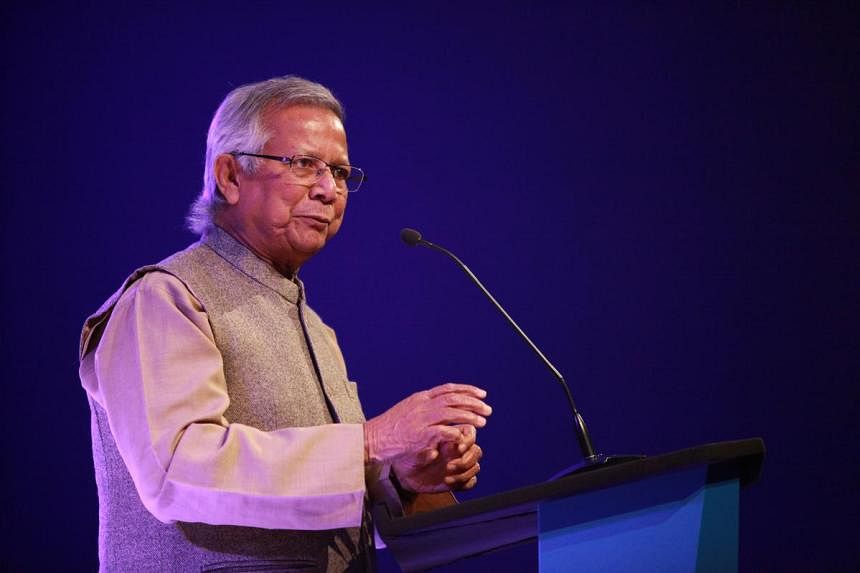
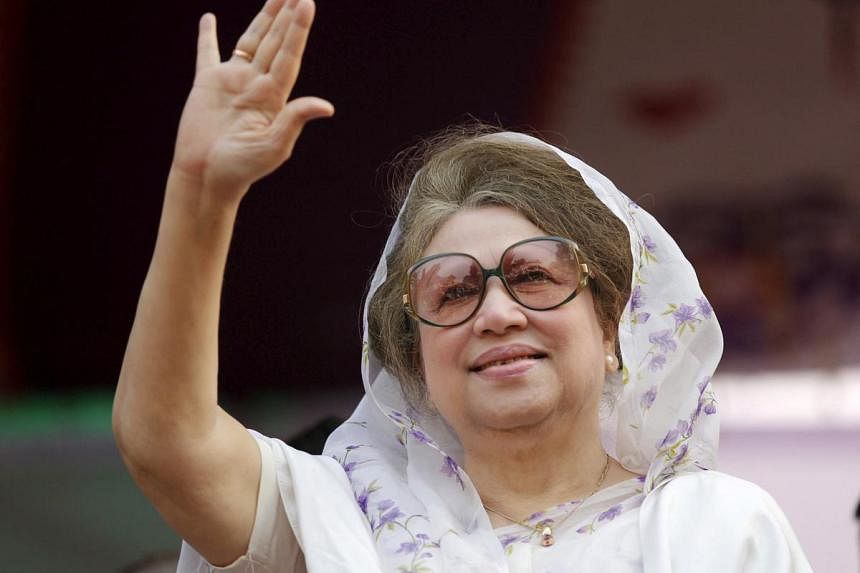
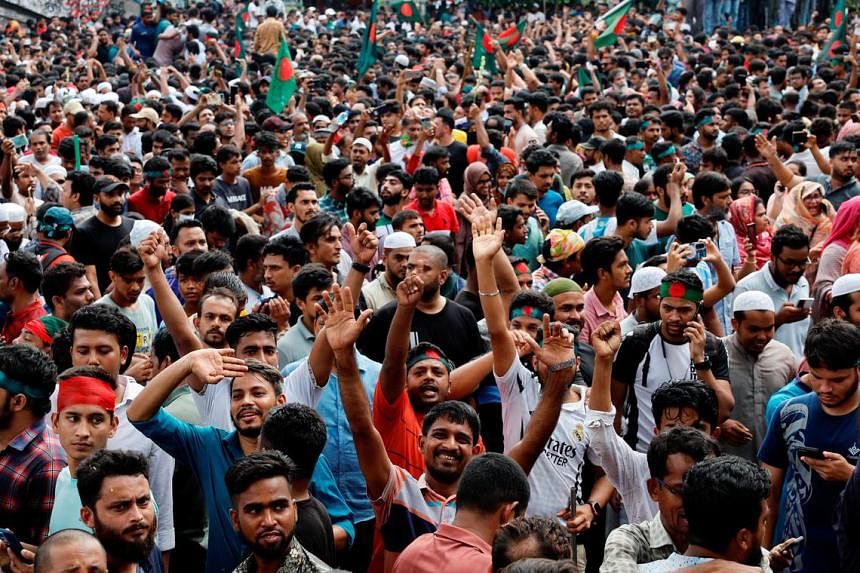

)